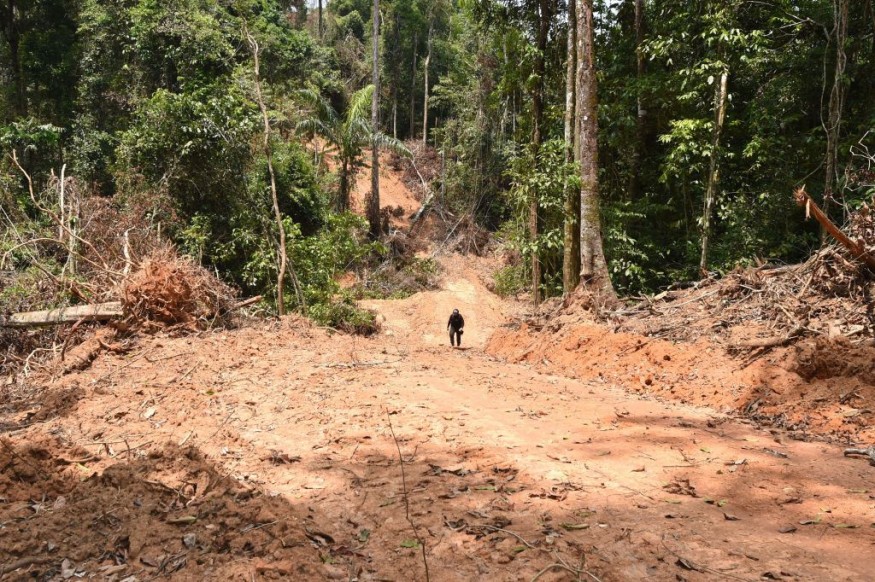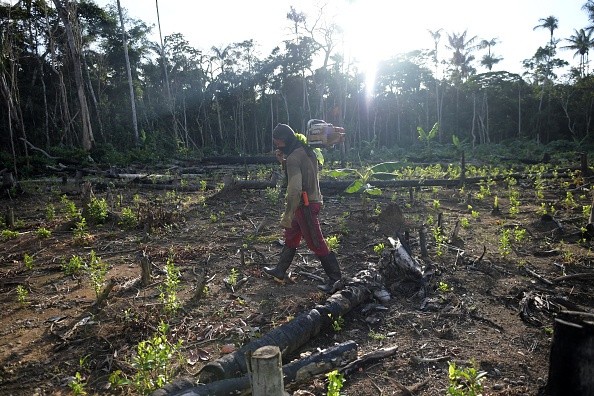Experts warn that the world will fall short of its deforestation goal without prompt action. In 2021, forest destruction decreased, although not by enough to achieve the 2030 promise set by 145 nations.

Global Forest Loss
Global forest loss decreased in 2021, but an assessment shows that the crucial climate target of halting deforestation by 2030 would still be missed without immediate action.
The area destroyed in 2021 decreased by 6.3% due to advances in several nations, particularly Indonesia. However, the destruction of the most carbon- and biodiversity-rich tropical rainforests decreased by just 3%, while approximately 7 million hectares were lost. The CO2 emissions brought on by the fallen trees were equal to those of Japan and the whole European Union combined.
Also Read : Developing Nations Demand Rich Nations Provide Compensation for Climate-Caused 'Loss and Damage'
Urgent Need

According to researchers, deforestation must be stopped to keep global warming to 1.5C over pre-industrial levels. 145 nations committed to stop logging by the end of the decade at the Cop26 climate summit held by the UN in Glasgow last year. The destruction and degradation of forests bring on 10% of the world's carbon emissions.
According to the assessment's authors, the proclamation made by the Glasgow leaders would be as "empty" as the commitment made by nations to halt deforestation by 2020 in 2014.
According to researchers, deforestation must be stopped to keep global warming to 1.5C over pre-industrial levels. 145 nations committed to stop logging by the end of the decade at the Cop26 climate summit held by the UN in Glasgow last year. The destruction and degradation of forests bring on 10% of the world's carbon emissions.
According to the assessment's authors, the proclamation made by the Glasgow leaders would be as "empty" as the commitment made by nations to halt deforestation by 2020 in 2014.
They said that there was a lack of political will, that the methods being taken to stop deforestation were not transparent or clear, and that just 1% of the necessary financing was being offered.
"The [Glasgow statement] was a huge occasion, the first time such a target had been endorsed at the leaders level by so many nations, covering 90% of the world's forests," said Erin Matson of Climate Focus, a policy group and one of the coalitions of organizations that did the evaluation.
"However, we are not on the course. Even though there has been a slight improvement, it could just be temporary. By phasing out or reversing safeguards, many nations endanger their development. For instance, Indonesia did not extend its ban on the use of palm oil when it came to an end in September 2021, and legislation on employment creation that was just passed puts natural forests in grave danger.
Failed Efforts
Brazil, whose deforestation has increased under president Jair Bolsonaro after declining under his predecessor, Luiz Inácio Lula da Silva, had the highest area of lost forest in 2021. Scientists have stated that the outcome of the election between the two candidates on October 30 will likely influence the future of the Amazon. The risks are great, Matson declared.
"We are swiftly approaching another wave of empty pledges and disappearing forests," said David Gibbs, a research associate at the World Resources Institute's (WRI) Global Forest Watch.
The methods include international trade restrictions, government prohibitions with strong enforcement, partnerships with the cattle, soy, wood, and other commodity corporations whose goods are most closely associated with deforestation, and enhancement of Indigenous and other locals' land rights.
For more news update about Environmental Action, don't forget to follow Nature World News!
© 2025 NatureWorldNews.com All rights reserved. Do not reproduce without permission.





